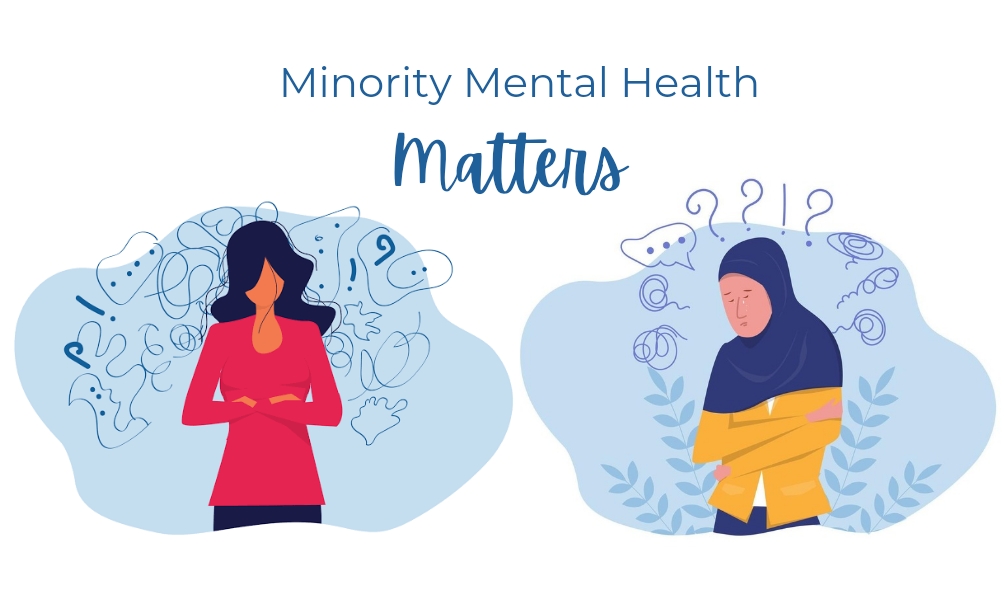Anxious and alienated: How communalism fuels mental health crisis among marginalized communities

Samiya Chopra, TwoCircles.net
New Delhi: “I sometimes feel that my identity is the root cause of my lack of mental peace. Wearing a hijab, I often find myself grappling with my identity,” expresses Rukhsana (name changed), a young Muslim woman. She recounts instances of receiving stares and intrusive questions from strangers in public, which leave her feeling anxious and unsettled. She has now come to terms that she cannot escape such encounters.
Communalism in contemporary Indian politics exacerbates the isolation of religious and caste minorities, leading to detrimental effects on their mental well-being. The social marginalization and discrimination they endure on a daily basis take a toll on their mental health.
Rukhsana says that news of hate crimes against Muslims deeply disturbs and worries her for herself and her family. The prevalence of such crimes makes her fear that she, too, could become a victim. “What is even more distressing is that despite constitutional guarantees of equality, minorities continue to struggle for their rights,” she adds.
Numerous studies have shown that individuals belonging to minority groups experience higher levels of mental health issues such as anxiety, depression and post-traumatic stress disorder (PTSD). Prejudices and intergenerational trauma prevalent in society contribute to these challenges, hindering the healing process for marginalized communities.
Reflecting on her own mental health journey, she admits to experiencing periods of depression. However, due to the pervasive stigma surrounding mental health and a lack of awareness about therapy, she hesitated to seek help, and her feelings gradually subsided. “I was not ready to acknowledge it or convince myself to seek help. I also doubted whether a therapist would offer a non-judgmental ear,” she explains.
Pragya Kashyap, who is pursuing masters from the Delhi University, became aware of her caste identity after relocating to New Delhi. She recalls facing derogatory remarks, insinuating that her admission to the DU was solely due to her caste and not because of her hard work. Belonging to Assam’s Kaibarta community, a Scheduled Caste (SC), she grapples with a constant sense of identity crisis and fear, compounded by societal prejudices.
“As an SC Assamese woman who doesn’t fit the stereotype of a typical north-easterner, I constantly feel my identity is under scrutiny. It leads me to perpetual fear,” Kashyap laments. She feels unjustly blamed and belittled because of her caste, and the political landscape offers her little solace.
The issue of minority mental health remains largely overlooked in India. Studies such as ‘Life Satisfaction and Well-Being at the Intersections of Caste and Gender in India’ published by Psychological Studies in 2022 highlight the disparity in well-being scores between “lower caste” and “upper caste” individuals.
Speaking about her own struggles with mental health, Kashyap acknowledges the need for therapy to address the anxiety stemming from societal judgments. However, she acknowledges that therapy remains a privilege inaccessible to many. “If given the chance, time and resources, I would seek therapy. I aspire to find inner calmness, understand the root causes of my feelings and feel validated,” she shares.
Sadaf Vidha, a Mumbai-based practicing therapist and founder of the Guftagu Therapy, underscores how discrimination based on identity can trigger anxiety, depression, panic attacks and self-esteem issues. “Feeling unsafe or being denied opportunities can foster emotions of helplessness, hopelessness and self-doubt,” she elaborates.
She notes that while some individuals seek therapy, specifically due to their minority status, their experiences are often intertwined with other predisposing factors. She draws parallels between communal tensions in India and minority mental health, citing instances like the protests against the controversial Citizenship Amendment Act (CAA), the Israel-Palestine conflict and caste-based violence as triggers for seeking counselling.
Discussing therapy models for minorities, Vidha emphasizes an affirmative approach that validates the client’s identity, known as multicultural or anti-bias counseling. This approach acknowledges the client’s cultural context and experiences, ensuring therapists are mindful of their own biases to prevent re-traumatization.
The mental health landscape in India predominantly comprises “upper caste” and upper class Hindus, leading to insensitivity or dismissal of minority issues. This has fueled the demand for therapists from similar cultural backgrounds, as individuals feel understood and validated by those who share their experiences. Support groups further facilitate healing by fostering a sense of community among individuals facing similar challenges.
In response to these needs, initiatives like The Blue Dawn and Ruh Care have emerged, offering mental health support tailored to marginalized communities. These organizations prioritize community healing and provide access to affordable and culturally sensitive therapy.
As the stories of Rukhsana and Pragya illustrate, identity-based discrimination takes a significant toll on the mental health of people belonging to marginalized communities. Addressing communal narratives and promoting equitable mental health care are imperative steps towards fostering a healthier and more inclusive society.
Samiya Chopra is a freelance journalist based in Delhi. She reports on culture, gender and health.
